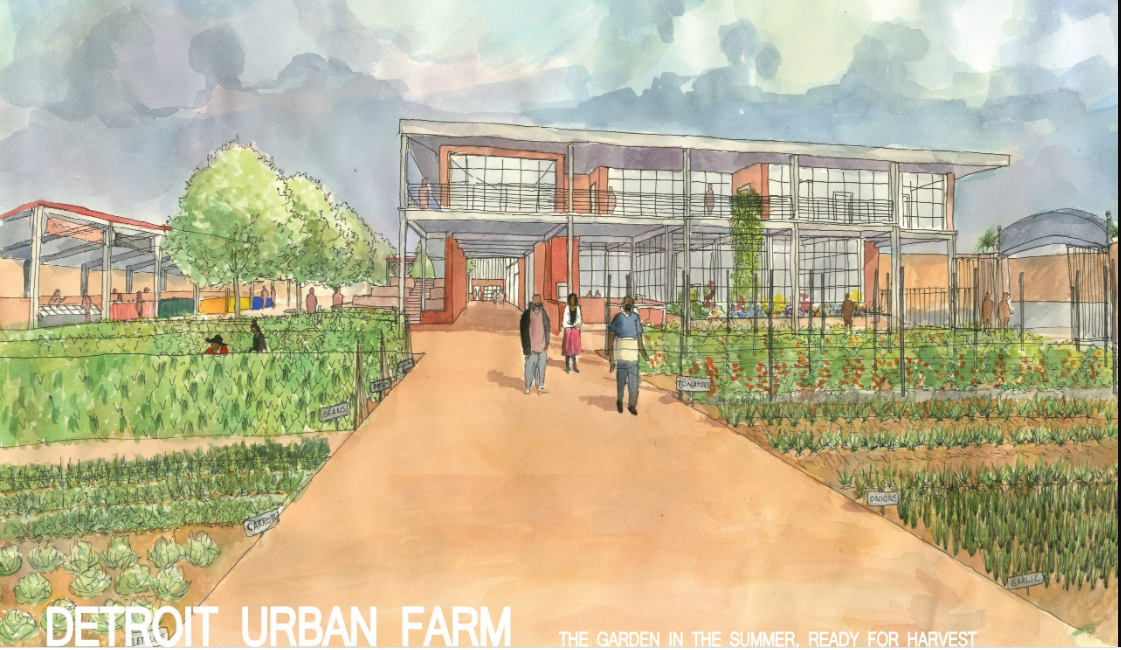2022
Urban Farm
Design Theme Description
Detroit and many other urban areas are beset with the paired problems of urban decline and suburban sprawl. These phenomena are directly linked to each other. Detroit has faced an on-going exodus from the city, one that was once a vital center of industry, in particular the automobile industry. Population loss means revenue loss, less ability to deliver services and lower quality of life. Urban areas often lack access to high quality food and produce. One strategy to address this problem is the development of urban farms. The availability of open land in Detroit offers a possibility to address the food disparity. The conversion of open land in this project to productive use will contribute to revitalization of the city and the community. Unlike the urban renewal strategies of the mid-20th century that called for razing vast areas, new construction may be intertwined with existing structures. This project proposes a strategy of knitting and weaving, rather than clean-slate development.

First Prize Winner
Carlos Sierra, San Antonio College, San Antonio, TX.
Second Prize Winner
Vincente Orellana Reyes & Pedro Privado, Forsyth Technical Community College, Winston-Salem, North Carolina
Third Prize Winner
Allyson Tomasello, Wake Technical Community College, Raleigh, North Carolina
Honorable Mentions
Ericka Garza, William Schott & Enaam Babeker, San Antonio College, San Antonio, TX
Matthew Wooten, Forsyth Technical Community College, Winston-Salem, North Carolina
Mailing Address:
4838 Drummond Avenue, Chevy Chase, MD 20815
Quick Links
© 2023 All Rights Reserved | CCCAP
Privacy Policy | Terms & Conditions | Disclaimer
Website powered by Neon One
